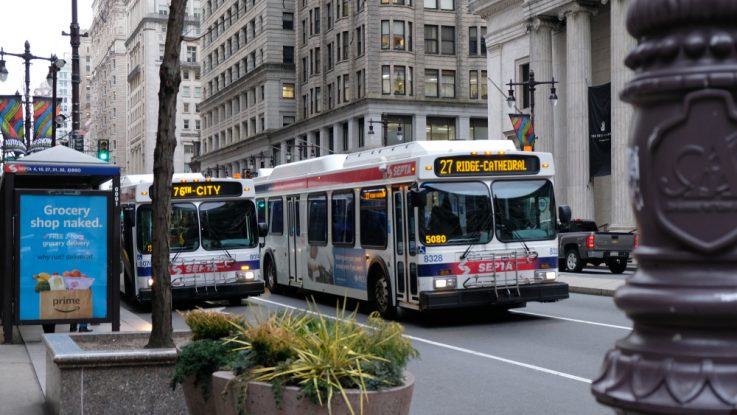
The Southeastern Pennsylvania Transportation Authority (SEPTA) – which runs the public transport system in Philadelphia – is working with Hayden AI on a camera-assisted bus lane and stop technology pilot project. The agency has reported that bus speeds in Philadelphia currently average at 8 miles per hour (~ 13 km/hr), which is slower than the national average of 13–14 miles per hour. Increasing congestion in the city center has caused 1.7 million hours of passenger delay and has added US$15.4 million USD to SEPTA’s operating costs. Illegally parked vehicles at bus and trolley stops contribute to these delays and prevent accessible boarding. By using automated bus lane enforcement (ABLE) cameras, SEPTA hopes to improve the speed and reliability of its bus services.
Chris Carson, CEO and co-founder of Hayden AI said: “Bus service should be rapid, accessible, and safe to board, but illegal parking in dedicated transit zones makes this impossible. We’ve seen our technology help keep bus lanes clear for buses in New York and are excited to assist SEPTA with this technology pilot in Philadelphia.”
The camera system is mounted inside seven buses on two selected routes. It automatically detects illegally parked vehicles on the bus lanes and at bus stops being used in the project. No tickets will be issued during the pilot program, but SEPTA expects that the technology will demonstrate the scope of the illegal parking problem impacting transit. Since the project’s launch on April 20th, the seven buses equipped with the pilot system have recorded on average over 4,000 incidents of parking in bus lanes or bus stops each week.
“SEPTA is excited to explore how new technologies can help improve safety on the system, as well as the overall customer experience. This pilot programme will help us better identify areas where we are seeing bus lane violations and look at possible solutions, particularly as we move forward with Bus Revolution,” said SEPTA General Manager and CEO Leslie Richard.